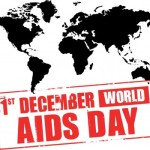It’s Constipation Awareness Month - How To Tell If You’re Constipated and What To Do About It

‘Tis the Season for irregular bowel habits — December is Constipation Awareness Month.
Think about it. The period between Thanksgiving and New Years is probably the time of year when our diets change the most. Seasonal holiday parties and social gatherings provide many opportunities for overeating, for eating at irregular times and consuming a variety of not-too-healthy holiday foods that are absent from our diets during the rest of the year.
This hectic and stressful time of year, with shopping and partying added to our regular activities, undoubtedly leads to fewer of us getting the exercise we need to maintain good digestive health.
No doubt that many of us, particularly wacky celebs like Gwyneth Paltrow, will be undergoing various types of cleanses in January as part of our New Years’ resolutions. But until then, how can we cope with seasonal constipation disorder?
4 Ways To Know If You’re Constipated
First of all, constipation is a symptom and not a disease. Doctors and patients can and often do differ in what they mean by particular terms. Health care professionals use the Rome Criteria for constipation. You have to have two or more of these symptoms for at least three months:
- Straining at defecation at least 25% of the time
- Hard stools at least 25% of the time
- Incomplete emptying of the bowels at least 25% of the time
- Two or fewer bowel movements per week
Believe it or not, there’s a visual guide to the hardness of stools, called the Bristol Stool Chart.
6 Ways To Get Unstuck
An important point to remember is that constipation affects almost everyone at one time or another. In most cases, following these simple steps will help prevent constipation:
- Eat a variety of foods especially vegetables, fruits, and whole grains
- Drink plenty of liquids
- Exercise regularly
- Visit the restroom as soon as you feel the urge to have a bowel movement
- Fiber-containing tablets and powders available at the drug store may help
- Consider using a diet journal to track your eating habits and patterns
3 Other Things You Need To Know About Constipation
One important thing to remember is that some medicines can cause constipation. Topping this list are prescription painkillers such as demerol. Did you know that constipation may have killed Elvis?
Constipation is very prevalent in elderly patients as noted by Hippocrates who said, some 2,500 years ago: The intestines tend to become sluggish with age.
Constipation in children is common and rarely a sign of a serious health problem. However it can affect quality of life and cause emotional problems and family stress. If your child appears constipated, a digital rectal examination (DRE) should be performed by your pediatrician or primary care physician prior to referring the child to a specialist.
Bonus: What Your Toilet Paper Says About You



























0 comments